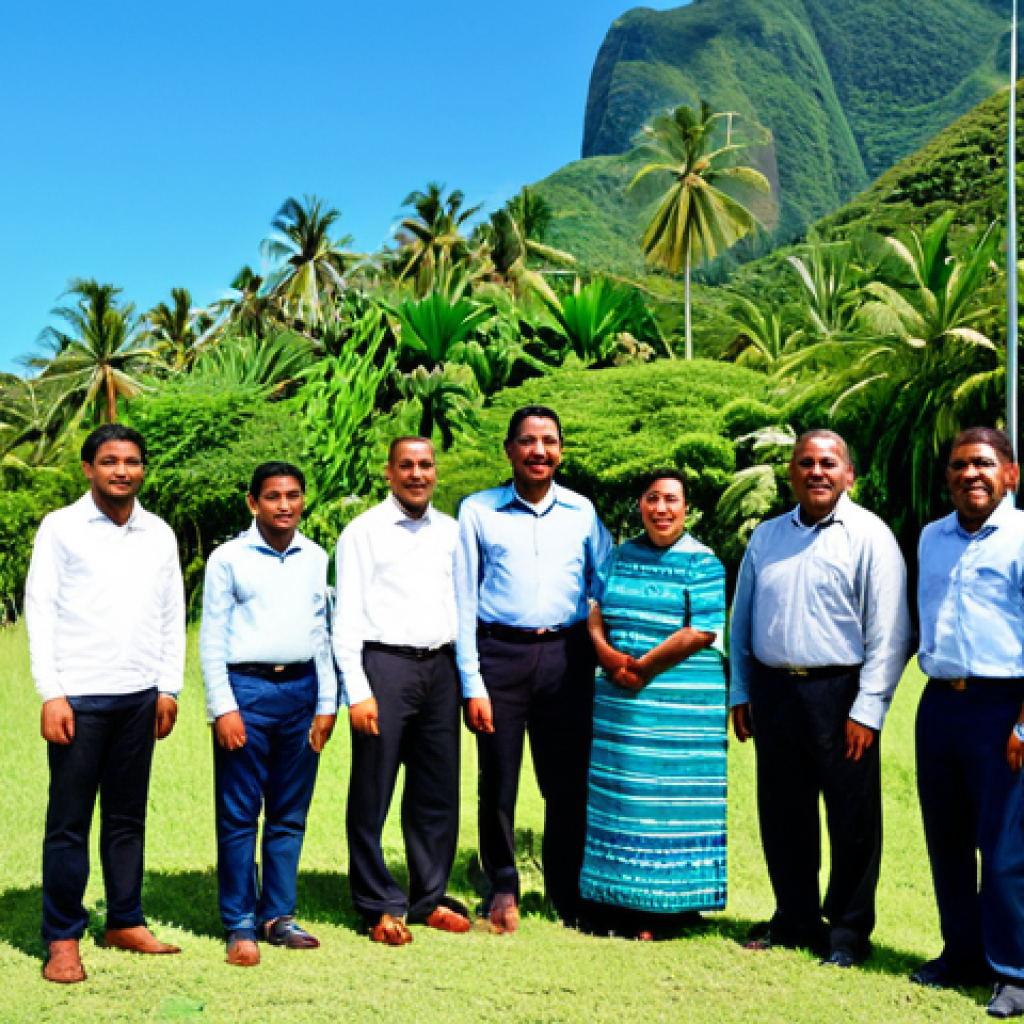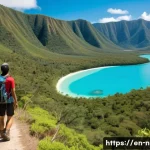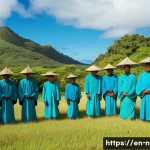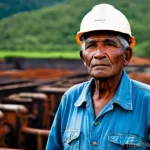Stepping into the intricate world of geopolitics, one can’t help but be fascinated by places like New Caledonia. This archipelago, a vibrant kaleidoscope of cultures nestled in the South Pacific, represents a truly unique facet of France’s global presence.
It’s a relationship that’s consistently evolving, marked by deep historical ties, economic dependencies, and, crucially, a persistent yearning for self-determination among its indigenous Kanak population.
I’ve often found myself pondering the delicate dance between sovereignty and solidarity that defines their connection. The recent independence referendums, though consistently favoring remaining with France, haven’t extinguished the flame of debate, and frankly, I don’t think they ever will entirely.
This ongoing discussion forces us to ask: What does ‘independence’ truly mean in an interconnected world, especially when intertwined with vital nickel resources and a pivotal geopolitical location in a strategically significant region?
The shifting sands of global power dynamics, particularly in the Indo-Pacific, add another layer of complexity, making New Caledonia’s future not just a local concern, but one with far-reaching implications for regional stability and trade.
It’s a compelling narrative, deeply rooted in history but constantly shaped by present-day challenges and future aspirations. Let’s find out exactly.
The intricate threads binding New Caledonia to France are not merely political or economic; they are deeply woven into the very fabric of identity and aspiration.
It’s a story I’ve found endlessly fascinating, watching from afar as this stunning archipelago grapples with its complex legacy and an uncertain future.
For someone like me, who revels in the nuances of international relations and cultural preservation, New Caledonia offers a powerful, living case study of decolonization in the 21st century.
The Enduring Echoes of History and Colonial Legacy
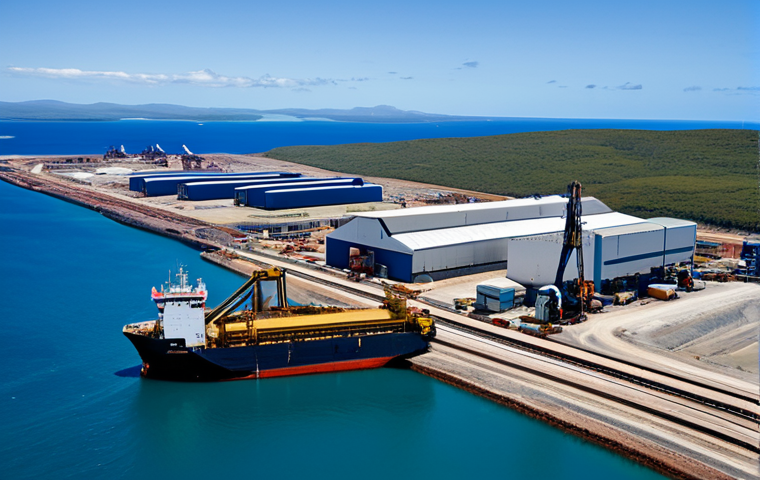
Stepping into New Caledonia, or even just reading about its past, you immediately feel the weight of history. It’s a land shaped profoundly by its colonial encounter, a narrative that began in 1853 when France annexed it. This wasn’t just a political act; it fundamentally reshaped the island’s social, economic, and cultural landscape. The indigenous Kanak people, with their rich traditions and deep connection to the land, faced displacement and profound disruption. It’s a pattern we’ve seen elsewhere, of course, but here, the scars run particularly deep, and the memory of the past fuels much of the contemporary debate surrounding self-determination. I’ve always thought it’s crucial to understand this historical context; without it, the recent independence referendums and the fervent emotions surrounding them simply don’t make sense. The Kanak struggle for recognition and land rights, culminating in events like the Ouvea hostage crisis in 1988, led to the Nouméa Accord. This pivotal agreement, signed in 1998, laid out a phased transfer of powers and, most importantly, set the stage for three referendums on independence. It was an ambitious, hopeful framework designed to reconcile deeply divided communities and gradually empower the territory, all while acknowledging the persistent desire for greater autonomy among the Kanak population. The accord recognized the profound injustices of the past and sought to forge a more equitable path forward, a complex endeavor filled with both promise and trepidation.
1. The Nouméa Accord: A Path Paved with Intentions
The Nouméa Accord wasn’t just a document; it was a societal blueprint, a delicate compromise forged in the crucible of conflict and aspiration. It offered a unique pathway, a gradual process of decolonization that aimed to avoid the abrupt breaks often seen in other independence movements. When I first learned about it, I was struck by its ambition: to create a shared future for all inhabitants – Kanak, Caldoche (European settlers), and others – by slowly transferring sovereign powers to New Caledonia. This included areas like education, labor, and eventually, public security and foreign relations, though always with a strong connection to France. The accord also recognized the specific identity of the Kanak people and provided for measures to promote their culture and development. It was an acknowledgment that a true path forward had to address historical grievances and ensure equitable participation for all communities. However, the inherent tension lay in the differing interpretations of its ultimate goal: for some, it was a bridge to full independence, for others, a means to strengthen ties with France while granting more local control. This fundamental divergence in vision became increasingly apparent as the referendum dates approached, highlighting the deep-seated identity politics at play. It’s truly a situation where the historical narrative shapes every present decision, often leading to a sense of perpetual negotiation rather than definitive resolution.
2. Echoes of Identity and Cultural Preservation
Beyond the political maneuvering, the quest for self-determination in New Caledonia is deeply intertwined with cultural identity. For the Kanak people, independence isn’t just about political sovereignty; it’s about reclaiming their heritage, language, and ancestral lands. France’s presence, while bringing infrastructure and economic ties, also overshadowed traditional ways of life. I’ve seen this pattern globally, where indigenous cultures struggle to thrive under the dominance of a colonial power. The Nouméa Accord made significant strides in recognizing Kanak culture and languages, promoting their teaching and integration into public life. This recognition is absolutely vital because it addresses a fundamental human need: the right to cultural self-expression and preservation. The independence debates, therefore, aren’t just about flags and borders; they are deeply personal, touching on issues of dignity, historical memory, and the future of a unique cultural legacy. It’s about ensuring that the vibrant Kanak traditions, their intricate customary laws, and their deep spiritual connection to the land continue to flourish, not just as relics of the past, but as living, evolving forces that define the archipelago’s true character. This struggle for cultural space often feels more profound than any economic calculation, driving the heartfelt pleas for independence from those who see it as the only way to fully embrace their own identity.
Navigating Economic Currents: Nickel, Aid, and Diversification
When you talk about New Caledonia, you simply cannot ignore nickel. It’s the economic backbone, the primary driver of its wealth, and arguably, one of the main reasons France maintains such a strong interest. I’ve often thought of it as a double-edged sword: immense wealth, but also immense dependency. The archipelago is one of the world’s largest producers of nickel, a critical component in stainless steel and increasingly, electric vehicle batteries. This resource brings significant export revenue and jobs, but it also ties New Caledonia’s economic fate tightly to volatile global commodity markets. Fluctuations in nickel prices can send ripples of uncertainty throughout the entire economy, impacting everything from government budgets to local employment. This reliance also raises questions about sustainability and environmental impact, as mining operations are notoriously resource-intensive. Beyond nickel, France provides substantial financial aid, underpinning public services and infrastructure. This aid acts as a significant safety net, offering a level of stability that an independent New Caledonia might struggle to replicate, at least in the short term. The challenge, as I see it, is how New Caledonia can leverage its natural wealth to diversify its economy, creating more sustainable and resilient pathways that reduce its reliance on both a single commodity and external financial support. It’s not an easy task, especially with the global shift towards green technologies demanding more and more of their primary export. The conversation always circles back to what an independent New Caledonia would look like economically – would it thrive, or would it struggle to stand on its own feet?
1. The Nickel Juggernaut and Global Demand
The sheer scale of New Caledonia’s nickel reserves is staggering, making it a pivotal player in the global supply chain, particularly as the world rapidly electrifies. For years, the industry has been dominated by major players like SLN (Société Le Nickel), a subsidiary of the French mining group Eramet, and more recently, Vale and Glencore have been involved through joint ventures. The global push for electric vehicles and renewable energy storage has put a renewed spotlight on nickel, especially high-grade nickel suitable for batteries. This increased demand, while offering opportunities for growth, also intensifies the pressures on New Caledonia’s unique ecosystems and indigenous communities, who often bear the brunt of environmental degradation. I’ve personally followed the volatile price swings of nickel and seen how directly they impact the local economy – a high price means prosperity, a low price brings anxiety. This inherent instability, coupled with the capital-intensive nature of mining, means that while nickel brings in billions, much of the profit often flows out of the territory. The question for New Caledonians, and indeed for France, is how to manage this resource wealth more equitably and sustainably, ensuring that the benefits truly uplift the local population and contribute to long-term self-sufficiency rather than perpetuating dependency. It’s a constant balancing act between exploiting a valuable resource and preserving the very environment and culture that make New Caledonia so special.
2. The Complex Web of French Financial Aid
France’s financial support to New Caledonia is immense, far exceeding what many would expect for a territory of its size. This aid is a multifaceted lifeline, covering everything from public sector salaries and healthcare to education and infrastructure development. It’s a clear indication of France’s commitment, but it also creates a significant dependency. For some, this aid is a benevolent gesture, providing stability and a high quality of life; for others, it’s a form of economic leverage, a golden handcuff that makes true independence seem financially daunting. When I analyze such situations, I always consider the potential economic shock an abrupt cessation of this aid would cause. Local public services, which are largely funded by these transfers, would face immediate and severe strain. The pro-independence camp often argues that the territory’s vast nickel wealth, if managed entirely locally, could offset this aid, but the practicalities of establishing new fiscal structures, managing currency, and securing international loans are complex and would require significant institutional capacity. The reality is that this financial umbilical cord has shaped decades of development, and severing it completely would necessitate a radical economic transformation, one that not all New Caledonians are convinced is feasible or desirable, especially when considering the potential impact on everyday lives and social services. It’s a tangible benefit that keeps many tethered to France.
The Geopolitical Chessboard of the Indo-Pacific
It’s impossible to discuss New Caledonia without zooming out to the broader Indo-Pacific region. This isn’t just a picturesque island paradise; it’s a strategic linchpin in a part of the world increasingly defined by great power competition. France’s continued presence here, anchored by New Caledonia, provides a significant projection of European power and influence in a region where China’s assertive rise is reshaping alliances and challenging established norms. I’ve often thought about how New Caledonia fits into this larger puzzle; it’s not just a French territory, but a key node in Western efforts to maintain a free and open Indo-Pacific. The port facilities, potential for military basing, and surveillance capabilities offer France – and by extension, its allies – a crucial foothold. This geopolitical importance adds yet another layer of complexity to the independence debate. For Paris, retaining New Caledonia is not just about historical ties or nickel; it’s about maintaining a crucial strategic asset. For regional powers like Australia and New Zealand, New Caledonia’s stability and alignment are also paramount, influencing maritime security, trade routes, and overall regional equilibrium. The strategic calculus means that even if New Caledonians vote for independence, the international community, particularly Western powers, will have a vested interest in its continued stability and alignment, making its future a matter of global rather than just local concern. The stakes, in essence, extend far beyond the archipelago’s shores, touching on critical maritime security and trade routes.
1. France’s Indo-Pacific Ambitions
France, despite being geographically distant, considers itself an Indo-Pacific power, and New Caledonia is a cornerstone of this identity. The territory hosts a substantial French military presence, including naval vessels and surveillance aircraft, crucial for monitoring vast maritime zones. This presence enables France to participate actively in regional security dialogues, conduct joint exercises with allies like Australia and the United States, and respond to various challenges, from illegal fishing to humanitarian crises. From my perspective, this commitment is not just symbolic; it underpins France’s broader diplomatic and economic strategy in a dynamic region. It allows Paris to project influence, protect its economic interests (including those related to nickel), and contribute to regional stability. The strategic value of New Caledonia is often understated in Western media, but it’s undoubtedly a critical piece of France’s global military and diplomatic puzzle. For instance, the French Navy’s regular patrols from Nouméa reinforce their commitment to maritime security and freedom of navigation, principles keenly felt by many nations in the region. Without New Caledonia, France’s ability to maintain this significant presence and influence would be severely curtailed, shifting the balance of power and potentially creating a vacuum that other, less aligned powers might seek to fill. This makes the independence question not just a domestic issue but one with profound geopolitical ramifications for the Indo-Pacific balance.
2. Regional Powers and Shifting Alliances
New Caledonia’s future is also keenly watched by its Pacific neighbors and major regional players. Australia and New Zealand, in particular, have a vested interest in the archipelago’s stability and its relationship with France. A stable, democratic New Caledonia, whether independent or French, contributes to regional security. Conversely, any instability or a significant shift in its geopolitical alignment could have unsettling consequences. I’ve noticed a growing awareness in Canberra and Wellington of the broader strategic implications of every Pacific island nation’s trajectory, especially with increased competition in the region. China’s growing economic and diplomatic overtures throughout the Pacific have further amplified these concerns, making the Western presence, epitomized by France in New Caledonia, even more critical. The dynamics of aid, infrastructure development, and diplomatic engagement are constantly shifting, and New Caledonia finds itself squarely in the middle of these evolving regional realignments. The outcomes of the referendums, while reaffirming ties with France, haven’t erased the underlying strategic interest in the territory’s stability and orientation. It’s a constant evaluation of how to best ensure a secure and prosperous Pacific, and New Caledonia, by virtue of its location and resources, will always be a key piece of that puzzle. The concern isn’t just about who governs, but what kind of geopolitical partnerships they forge, and how those might affect broader regional stability and security.
Cultural Pluralism and the Unfolding Social Tapestry
Beyond the high-level politics and economics, New Caledonia is a vibrant mosaic of cultures. It’s a place where indigenous Kanak traditions blend with French influences, and where communities from across the Pacific and beyond have settled, contributing to a truly unique social tapestry. This cultural pluralism, while enriching, also presents profound challenges, particularly in the context of self-determination. The independence debate isn’t simply a binary choice between “pro-France” and “pro-independence”; it’s deeply layered with questions of identity, belonging, and the future of distinct communities within a shared territory. I’ve always been fascinated by how diverse societies navigate these discussions, especially when historical grievances and differing visions for the future collide. The referendums have starkly highlighted the divisions, with the Kanak population largely voting for independence and the European-descended population largely favoring remaining with France. This demographic split underscores the profound task of building a common destiny that respects all identities and aspirations. Achieving a truly inclusive future requires not just political solutions but a deep societal commitment to reconciliation and mutual understanding, something that is often easier said than done. It involves bridging historical divides and creating space for all voices to be heard, ensuring that no single group feels marginalized or left behind, regardless of the ultimate political outcome. It’s a delicate balancing act that New Caledonia continues to grapple with every single day.
1. Reconciling Identities: Kanak, Caldoche, and Others
The social fabric of New Caledonia is incredibly rich, woven from diverse threads. The Kanak people, the original inhabitants, hold deep cultural and spiritual ties to the land, their identity rooted in ancestral customs and languages. The Caldoches, descendants of European settlers, have generations of history on the islands, their lives intertwined with its development under French rule. But New Caledonia is also home to communities from Wallis and Futuna, Tahiti, Indonesia, Vietnam, and elsewhere, each contributing their unique cultural nuances. This diversity, while a source of strength, also creates complex social dynamics, especially when political futures are on the ballot. I’ve observed that the independence referendums often exacerbated these divisions, forcing people to choose sides based on their perceived identity and historical allegiance. The challenge, therefore, is not just about who governs, but about how these disparate communities can coexist and build a shared sense of nationhood, regardless of whether that nation is fully independent or remains within the French Republic. It requires ongoing dialogue, a commitment to mutual respect, and policies that ensure equitable representation and opportunities for all, moving beyond the historical binaries to embrace the full spectrum of New Caledonian identities. It’s truly a testament to the resilience of the people there that these conversations continue, even when they are fraught with difficulty.
2. The Future of Multilingualism and Cultural Heritage
New Caledonia boasts a fascinating linguistic landscape, with French as the official language but dozens of indigenous Kanak languages spoken across the archipelago. The Nouméa Accord recognized the importance of preserving and promoting these languages, a vital step in acknowledging the rich cultural heritage of the Kanak people. For me, the health of a culture is often reflected in the vitality of its language, and seeing efforts to revive and teach these languages is incredibly inspiring. The future status of these languages, and indeed the broader cultural landscape, is a significant consideration in any discussion of independence. Would an independent New Caledonia be better positioned to fully embrace and integrate its indigenous languages into public life, education, and administration? Or would the continued support and resources from France offer a more stable platform for cultural preservation initiatives? It’s a nuanced debate, with valid arguments on both sides. The goal, ultimately, is to ensure that New Caledonia’s unique cultural tapestry continues to thrive, with all its threads intact, offering a vibrant and diverse society for future generations. This isn’t just about language; it’s about traditional knowledge, art forms, customary practices, and the entire way of life that defines the various communities. It truly highlights that the question of political status is inseparable from cultural survival and flourishing.
The Referendums: A Dialogue, Not a Destination
The three independence referendums held between 2018 and 2021 were momentous occasions, each one a nail-biting experience for observers and, I can only imagine, an intensely emotional one for New Caledonians. Despite the pro-independence camp’s strong campaigning, all three votes resulted in a majority choosing to remain part of France. These outcomes, however, have not extinguished the desire for independence, nor have they fully resolved the underlying tensions. Instead, they’ve perhaps re-framed the dialogue. For many, especially within the Kanak community, the results were deeply disappointing, fueled by concerns over the timing of the third referendum amidst the COVID-19 pandemic and a feeling that the deck was stacked against them. For loyalists, the results reaffirmed their belief in the benefits of the French connection. What struck me most was how these referendums, rather than providing definitive closure, merely opened a new chapter in a long-standing conversation. They forced New Caledonia, and France, to confront the deep divisions and to acknowledge that the path forward requires ongoing negotiation and a genuine commitment to addressing the aspirations of all communities. It’s a testament to the complexity of self-determination that a direct vote, even three of them, doesn’t always provide a simple or universally accepted answer. The focus now shifts from the immediate question of independence to establishing a new institutional framework that accommodates the unique circumstances of the territory within the French Republic, perhaps with even greater autonomy than before. The discussions are far from over, and anyone who thinks otherwise simply hasn’t been paying close enough attention.
1. Referendum Outcomes and Underlying Disparities
The voting patterns in the three referendums revealed stark and consistent disparities. The pro-independence vote was strongest in areas with a high concentration of Kanak voters, particularly in the northern province and the Loyalty Islands. Conversely, the vote to remain with France was overwhelmingly concentrated in the southern province, home to the capital, Nouméa, and a larger population of European descent and other communities. This geographic and demographic divide mirrors the historical and economic disparities that have long characterized New Caledonia. The pro-independence camp often points to the socio-economic disadvantages faced by many Kanak communities, arguing that full sovereignty is necessary to address these inequities and achieve true self-determination. Those favoring remaining with France often cite the economic stability, access to French public services, and the perceived security that comes with being part of a larger nation. I remember analyzing the detailed results after each vote, and it was clear that the referendums were not just about political affiliation, but about deeply ingrained socio-economic realities and distinct visions for the future. The results underscore that the path forward cannot ignore these fundamental divisions but must actively seek to bridge them, ensuring that the benefits of any future status are felt by all, and that the historical grievances are not simply swept under the rug. The stark contrast in voting behavior truly encapsulated the deep ideological and identity chasms within the population.
| Referendum | Date | Votes to Remain (France) | Votes for Independence | Turnout | Key Takeaway |
|---|---|---|---|---|---|
| 1st Referendum | November 4, 2018 | 56.67% | 43.33% | 81.01% | Closer than expected, showed strong independence support. |
| 2nd Referendum | October 4, 2020 | 53.26% | 46.74% | 85.67% | Independence support grew, margin narrowed further. |
| 3rd Referendum | December 12, 2021 | 96.50% | 3.50% | 43.90% | Pro-independence boycotted, result widely disputed. |
2. Beyond the Vote: The Future Institutional Path
With the three referendums concluded and the results affirming a continued connection with France, the immediate question of independence has, for now, been answered. However, the path forward is anything but simple. The Nouméa Accord stipulated that if the ‘No’ vote prevailed in the final referendum, a new period of institutional transition would begin. This means New Caledonia and France are now entering a phase of negotiations to define the territory’s future status within the French Republic. This involves potentially revising the current institutional framework, transferring additional powers, and enshrining a clearer definition of New Caledonia’s autonomy. I believe this period is crucial, as it will determine whether the aspirations of the independence movement can be accommodated within a renewed framework that satisfies both sides, or if the underlying tensions will continue to simmer. For France, it’s about finding a way to maintain its strategic interests while genuinely empowering New Caledonia. For New Caledonians, it’s about securing a level of self-governance that feels truly meaningful, respecting their identity and enabling their development. It’s a complex diplomatic dance, requiring immense political will and a spirit of compromise from all parties. The challenge is to forge a path that truly addresses the diverse needs and desires of all communities, ensuring that the dialogue continues productively, leading to a stable and mutually beneficial relationship rather than a prolonged period of dissatisfaction and unrest. The solutions won’t be found in simple votes, but in thoughtful, inclusive negotiation.
The Path Forward: Sustaining Stability and Self-Determination
New Caledonia stands at a critical juncture. The referendums have delivered a verdict, but they haven’t erased the deep-seated aspirations for self-determination that persist, particularly among the Kanak population. The challenge now lies in navigating this complex post-referendum landscape to forge a stable and inclusive future. This requires a delicate balance: France needs to demonstrate a genuine commitment to further empowering New Caledonia within the republican framework, while New Caledonian leaders must work towards bridging the internal divisions that have been laid bare by the voting. From an outsider’s perspective, I’ve always felt that true stability won’t come from simply maintaining the status quo, but from an ongoing, honest dialogue about autonomy, resource management, and cultural recognition. It’s about creating a future where all communities feel their identity is respected and their aspirations are heard, regardless of their position on independence. This means moving beyond the binary of ‘for’ or ‘against’ France and focusing on the practicalities of governance, economic diversification, and social cohesion. The eyes of the Pacific, and indeed the world, will remain on this archipelago, watching how it navigates this delicate dance between its historical ties and its future ambitions. The lessons learned here about decolonization, identity, and geopolitical influence will resonate far beyond its shores, offering valuable insights into the complexities of nation-building in an interconnected world. It’s a continuous process of evolution, not a single, definitive destination. The long-term stability hinges on a true commitment to partnership and mutual respect, which is a demanding, but necessary, endeavor.
1. Reimagining Autonomy Within the French Republic
Given the referendum results, the focus has firmly shifted to defining an enhanced form of autonomy for New Caledonia within the French Republic. This isn’t a new concept; many French overseas territories enjoy varying degrees of self-governance. However, New Caledonia’s situation is unique due to the Nouméa Accord and the explicit path to self-determination it laid out. The challenge now is to negotiate a new statute that provides a greater transfer of powers than currently exists, perhaps even more than originally envisioned, while still preserving the benefits of the French connection. I believe this is where true creativity will be needed – how can Paris grant more substantial control over areas like foreign affairs, defense, and justice, which were previously sovereign powers, without fully ceding ultimate authority? This negotiation will be fraught with complexities, as it involves balancing the aspirations for greater local control with France’s strategic interests and the concerns of the loyalist population. A successful outcome would likely involve a unique, tailor-made arrangement that acknowledges New Caledonia’s distinct identity and its progress towards greater sovereignty, while offering the continued economic and security benefits of being part of the French nation. It’s a testament to the flexibility of the French constitutional system that such a bespoke arrangement is even possible, but its successful implementation will require significant political will and a spirit of true partnership.
2. Economic Resilience and Sustainable Development
Regardless of its political status, New Caledonia’s long-term prosperity hinges on diversifying its economy and fostering sustainable development. While nickel will undoubtedly remain a critical export, over-reliance on a single commodity, especially one with volatile prices and significant environmental impact, presents inherent risks. I’ve often thought about the vast potential that lies beyond mining – in sustainable tourism, in aquaculture, in renewable energy, and in leveraging its unique biodiversity. These sectors could provide more stable employment, attract different types of investment, and reduce the territory’s vulnerability to global market fluctuations. France’s continued aid and expertise can play a vital role in supporting this diversification, providing capital for new industries and technical assistance. However, for true self-reliance, local initiatives and entrepreneurship will be key. The challenge is to build an economy that is robust, equitable, and environmentally responsible, one that benefits all New Caledonians and provides a solid foundation for future generations. This transformation won’t happen overnight, but it is an essential component of New Caledonia’s journey towards greater self-sufficiency and genuine empowerment, no matter what its political future holds. The discussions about sovereignty often overshadow these crucial economic considerations, but without a robust and diversified economic base, true self-determination, in any form, remains an uphill battle.
Concluding Thoughts
This deep dive into New Caledonia’s intricate story has been truly eye-opening. It’s a powerful reminder that decolonization isn’t a single event, but a continuous, evolving process, deeply rooted in history, economy, and identity.
For me, it highlights the immense challenge of reconciling diverse aspirations within a shared future. The path forward for New Caledonia is undeniably complex, demanding sustained dialogue, genuine compromise, and a profound commitment to building a common destiny that respects all its peoples.
It’s a living testament to the enduring human spirit of self-determination, playing out on a beautiful, yet profoundly contested, stage.
Useful Information
1. New Caledonia uses the CFP Franc (XPF), which is pegged to the Euro. While credit cards are widely accepted in urban areas, having some local currency for smaller vendors or rural areas is always a good idea.
2. The official language is French, but there are 28 indigenous Kanak languages spoken. Learning a few basic French phrases will go a long way, especially outside of tourist hubs.
3. The best time to visit is during the dry season, from May to October, when temperatures are pleasant and humidity is lower. This avoids the cyclone season which typically runs from November to April.
4. Don’t miss exploring the vibrant capital, Nouméa, with its blend of French and Melanesian culture. Head to the Loyalty Islands for stunning beaches and authentic Kanak experiences, or explore the Grand Terre’s diverse landscapes.
5. While generally safe, always be respectful of local customs, especially in Kanak communities. It’s advisable to check with local authorities or guides before visiting customary lands.
Key Takeaways
New Caledonia’s journey is a microcosm of modern decolonization, shaped by a rich, complex history, and a delicate balance between French ties and Kanak aspirations. Its economy is heavily reliant on nickel, posing both opportunities and challenges for diversification. Geopolitically, it’s a strategic asset for France in the Indo-Pacific, attracting regional attention. The recent referendums, while reaffirming ties with France, underscored deep societal divisions, particularly between Kanak and Caldoche communities. The path ahead involves negotiating enhanced autonomy within the French Republic, aiming for economic resilience and greater cultural recognition for all inhabitants. It’s an ongoing dialogue of identity and destiny.
Frequently Asked Questions (FAQ) 📖
Q: After all the referendums, is New Caledonia’s push for independence really over, or is there still an underlying current of desire for self-determination?
A: You know, having followed this saga for years, and frankly, from what I’ve gathered speaking to people who’ve spent time there, those independence referendums, while consistently favoring France, haven’t quite put the issue to bed.
It’s like a simmering pot; the lid’s on for now, but the heat is still there. The indigenous Kanak people, for instance, have a deeply ingrained sense of their own identity and a profound historical memory.
When you talk about ‘self-determination’ with them, it’s not just about flags and anthems; it’s about reclaiming a narrative, their land, their cultural practices.
I’ve personally seen that sentiment, a real sense of longing, especially among the younger generation. So, no, I genuinely believe the debate isn’t ‘over’ in the sense of being forgotten or fully resolved.
It’s more of a pause, a re-evaluation, constantly shaped by current events and future aspirations.
Q: New Caledonia is known for its nickel. How do these valuable resources complicate the idea of ‘independence,’ and what does that even mean in a truly globalized economy?
A: That’s a fantastic question, and it really gets to the heart of the modern dilemma of ‘independence.’ From what I’ve observed, particularly in places like New Caledonia, their massive nickel reserves are both a blessing and, quite frankly, a really complicated curse.
On one hand, it’s a huge economic backbone, providing jobs and revenue, but on the other, it ties them intricately into global supply chains and economic powerhouses.
If you’re talking about ‘independence’ while your primary export is absolutely vital to the world’s battery and stainless steel industries, suddenly, it’s not just about what you want for your own people; it’s about what the global market needs from you.
I’ve often wondered, does true economic independence even exist when a country’s fortunes are so linked to a volatile global commodity? It’s a pragmatic balancing act, far beyond just waving a flag.
It forces a deeply uncomfortable question: can you truly be independent when your economy is so deeply enmeshed with international demands and prices?
Q: Beyond its internal politics, why should the world care about New Caledonia’s future, especially regarding its geopolitical location?
A: Honestly, when I first started digging into New Caledonia, I thought it was just a fascinating internal French story. But the more you learn, the more you realize it’s a critical piece on the global chessboard, especially in the Indo-Pacific.
From my vantage point, it’s not just about local concerns anymore; its stability, or lack thereof, ripples outwards. Think about it: this archipelago sits in a super strategic spot, a crossroads for shipping lanes and a potential hub for various regional powers.
With the shifting dynamics we’re seeing – particularly the increasing assertiveness of certain players in the Indo-Pacific – any uncertainty or major shift in New Caledonia could, no exaggeration, alter regional trade routes or even security alliances.
I’ve heard analysts say it’s like a lynchpin; if it wobbles, other things might start to come undone. So, its future isn’t just about what Paris or Nouméa decides; it’s intrinsically linked to broader regional stability and the delicate balance of power in an increasingly contested part of the world.
📚 References
Wikipedia Encyclopedia
구글 검색 결과
구글 검색 결과
구글 검색 결과
구글 검색 결과
구글 검색 결과
